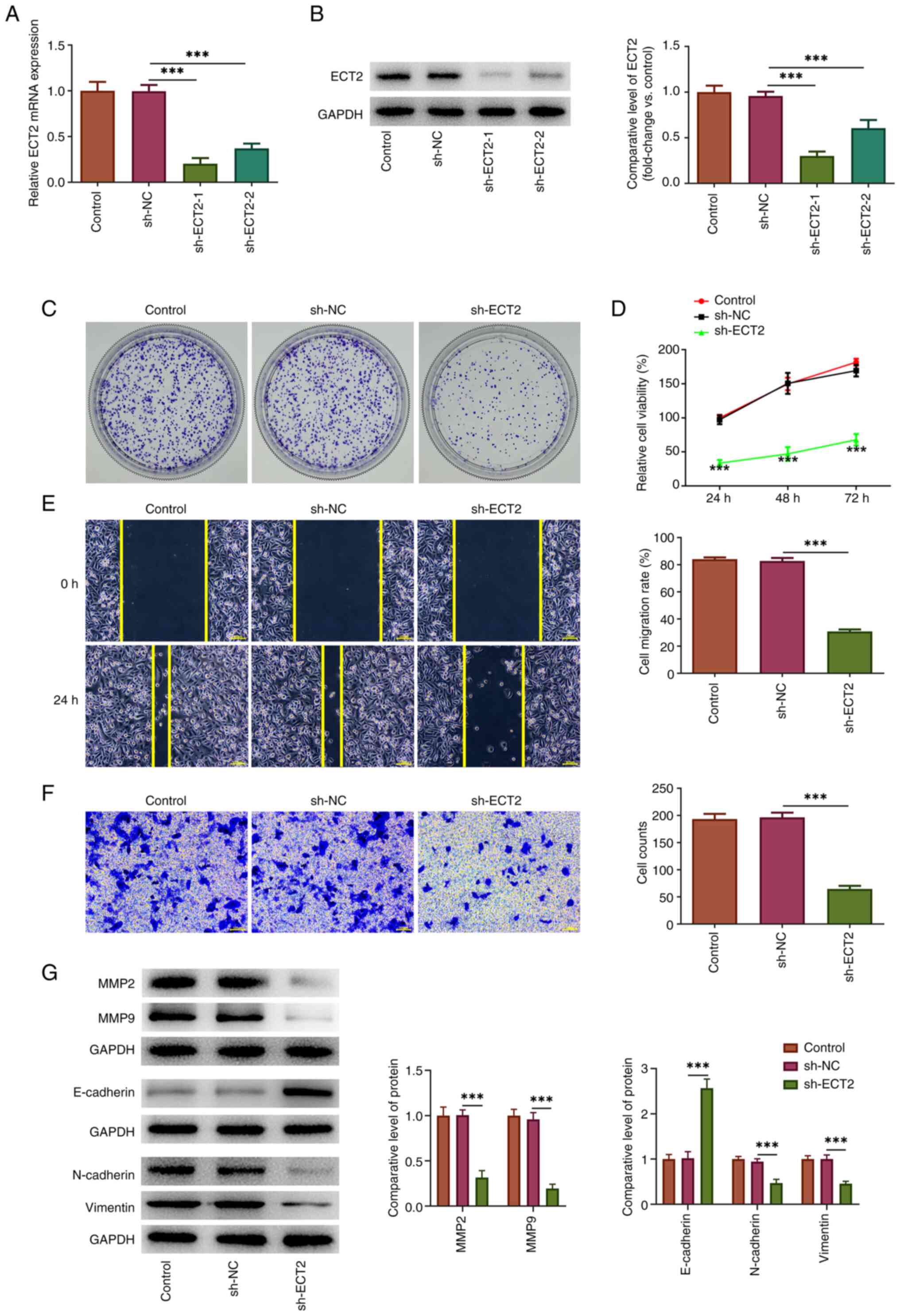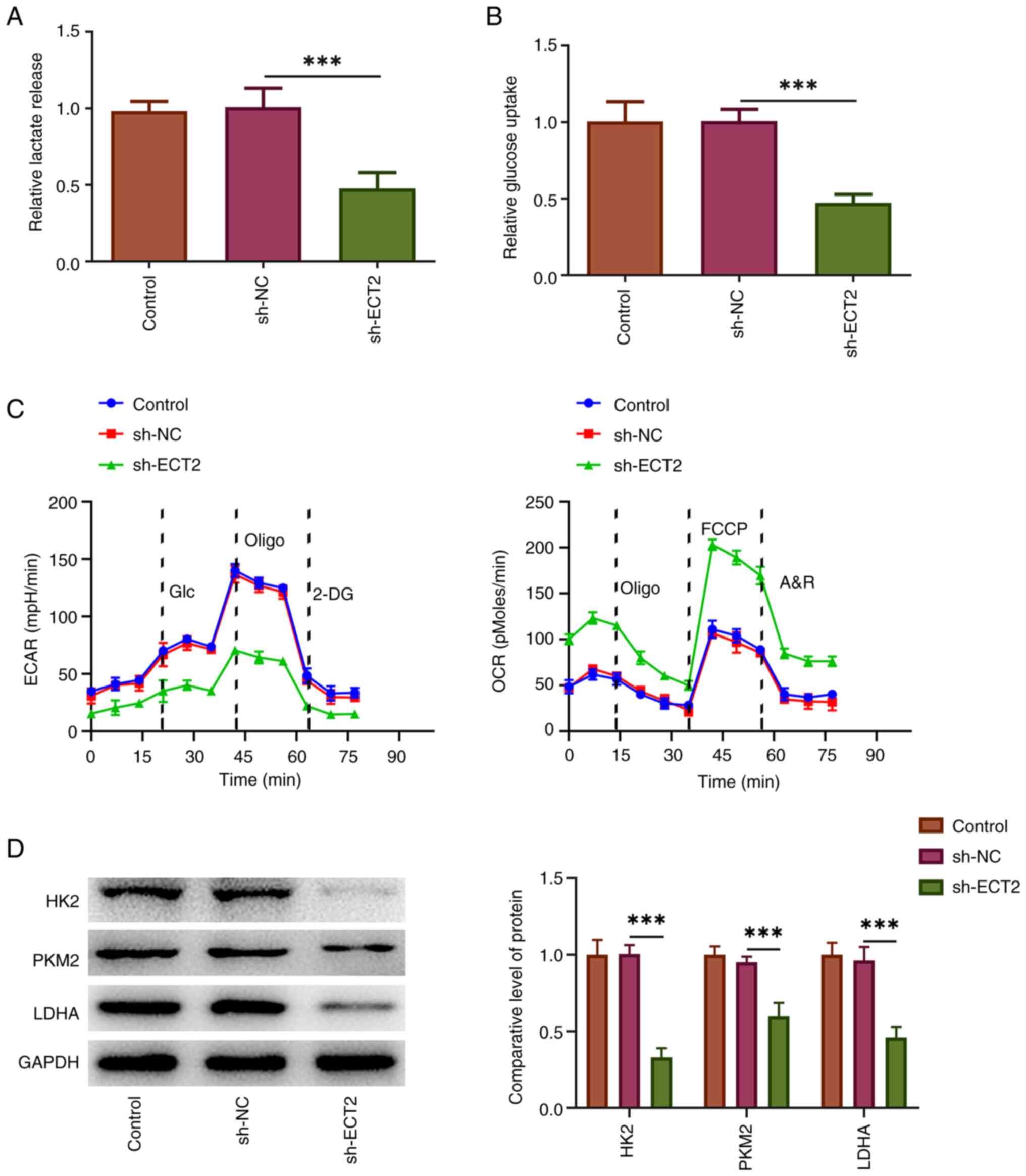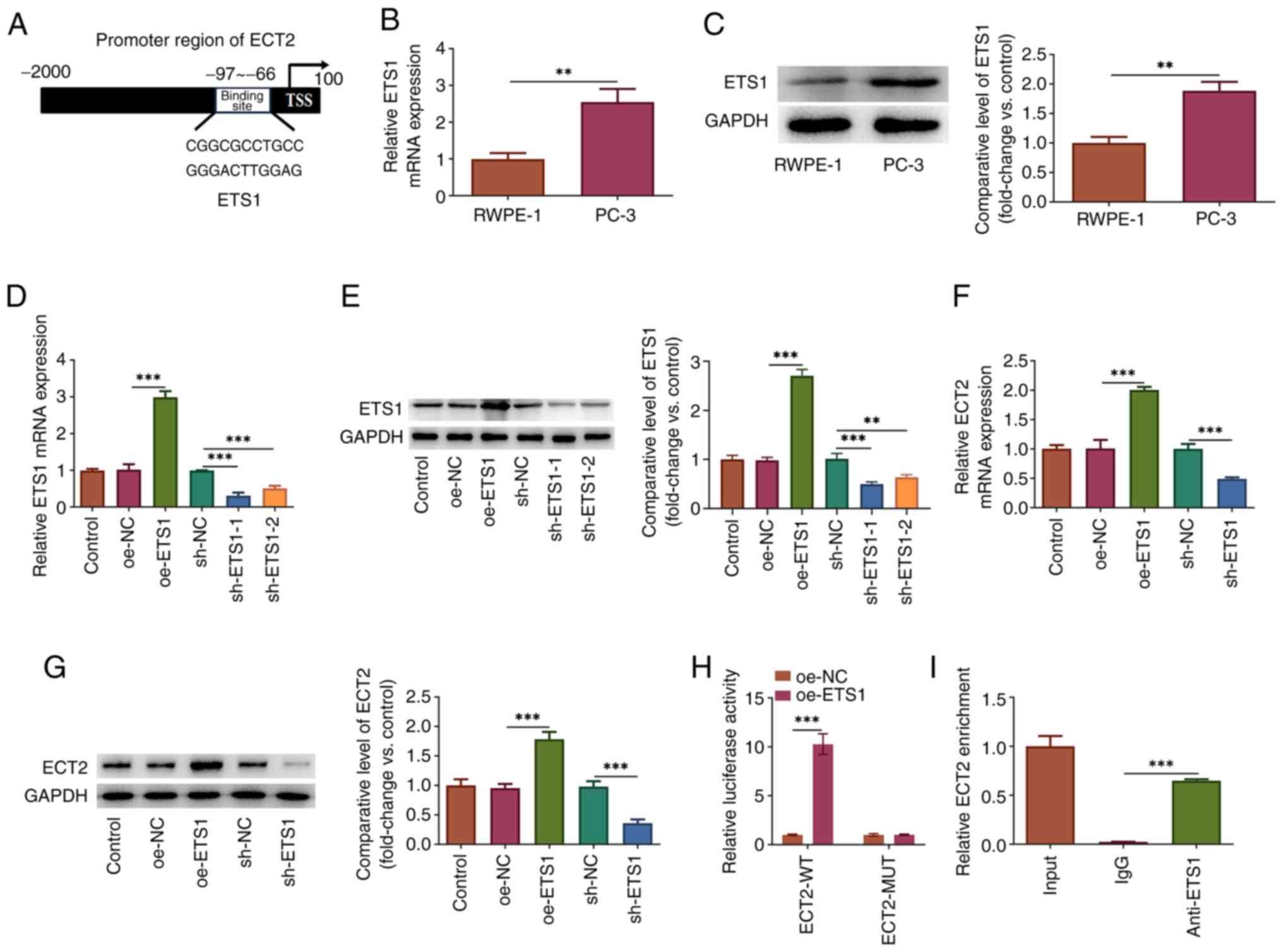|
1
|
Adamaki M and Zoumpourlis V: Prostate
cancer biomarkers: From diagnosis to prognosis and precision-guided
therapeutics. Pharmacol Ther. 228:1079322021. View Article : Google Scholar : PubMed/NCBI
|
|
2
|
Uhr A, Glick L and Gomella LG: An overview
of biomarkers in the diagnosis and management of prostate cancer.
Can J Urol. 27((S3)): 24–27. 2020.PubMed/NCBI
|
|
3
|
Siegel RL, Miller KD, Wagle NS and Jemal
A: Cancer statistics, 2023. CA Cancer J Clin. 73:17–48. 2023.
View Article : Google Scholar : PubMed/NCBI
|
|
4
|
Culp MB, Soerjomataram I, Efstathiou JA,
Bray F and Jemal A: Recent global patterns in prostate cancer
incidence and mortality rates. Eur Urol. 77:38–52. 2020. View Article : Google Scholar : PubMed/NCBI
|
|
5
|
Howard N, Clementino M, Kim D, Wang L,
Verma A, Shi X, Zhang Z and DiPaola RS: New developments in
mechanisms of prostate cancer progression. Semin Cancer Biol.
57:111–116. 2019. View Article : Google Scholar : PubMed/NCBI
|
|
6
|
Bhoir S and De Benedetti A: Targeting
prostate cancer, the ‘tousled way’. Int J Mol Sci. 24:111002023.
View Article : Google Scholar : PubMed/NCBI
|
|
7
|
Sehrawat A, Gao L, Wang Y, Bankhead A III,
McWeeney SK, King CJ, Schwartzman J, Urrutia J, Bisson WH, Coleman
DJ, et al: LSD1 activates a lethal prostate cancer gene network
independently of its demethylase function. Proc Natl Acad Sci USA.
115:E4179–E4188. 2018. View Article : Google Scholar : PubMed/NCBI
|
|
8
|
Fields AP and Justilien V: The guanine
nucleotide exchange factor (GEF) Ect2 is an oncogene in human
cancer. Adv Enzyme Regul. 50:190–200. 2010. View Article : Google Scholar : PubMed/NCBI
|
|
9
|
Saito S, Liu XF, Kamijo K, Raziuddin R,
Tatsumoto T, Okamoto I, Chen X, Lee CC, Lorenzi MV, Ohara N and
Miki T: Deregulation and mislocalization of the cytokinesis
regulator ECT2 activate the Rho signaling pathways leading to
malignant transformation. J Biol Chem. 279:7169–7179. 2004.
View Article : Google Scholar : PubMed/NCBI
|
|
10
|
Schneid S, Wolff F, Buchner K, Bertram N,
Baygun S, Barbosa P, Mangal S and Zanin E: The BRCT domains of ECT2
have distinct functions during cytokinesis. Cell Rep.
34:1088052021. View Article : Google Scholar : PubMed/NCBI
|
|
11
|
Cook DR, Kang M, Martin TD, Galanko JA,
Loeza GH, Trembath DG, Justilien V, Pickering KA, Vincent DF,
Jarosch A, et al: Aberrant expression and subcellular localization
of ECT2 drives colorectal cancer progression and growth. Cancer
Res. 82:90–104. 2022. View Article : Google Scholar : PubMed/NCBI
|
|
12
|
Zhang H, Geng Y, Sun C and Yu J:
Upregulation of ECT2 predicts adverse clinical outcomes and
increases 5-fluorouracil resistance in gastric cancer patients. J
Oncol. 2021:21028902021.PubMed/NCBI
|
|
13
|
Sun BY, Wei QQ, Liu CX, Zhang L, Luo G, Li
T and Lü MH: ECT2 promotes proliferation and metastasis of
esophageal squamous cell carcinoma via the RhoA-ERK signaling
pathway. Eur Rev Med Pharmacol Sci. 24:7991–8000. 2020.PubMed/NCBI
|
|
14
|
Yi M, Zhang D, Song B, Zhao B, Niu M, Wu
Y, Dai Z and Wu K: Increased expression of ECT2 predicts the poor
prognosis of breast cancer patients. Exp Hematol Oncol. 11:1072022.
View Article : Google Scholar : PubMed/NCBI
|
|
15
|
Guo Z, Chen X, Du T, Zhu D, Lai Y, Dong W,
Wu W, Lin C, Liu L and Huang H: Elevated levels of epithelial cell
transforming sequence 2 predicts poor prognosis for prostate
cancer. Med Oncol. 34:132017. View Article : Google Scholar : PubMed/NCBI
|
|
16
|
Chandrashekar DS, Karthikeyan SK, Korla
PK, Patel H, Shovon AR, Athar M, Netto GJ, Qin ZS, Kumar S, Manne
U, et al: UALCAN: An update to the integrated cancer data analysis
platform. Neoplasia. 25:18–27. 2022. View Article : Google Scholar : PubMed/NCBI
|
|
17
|
Livak KJ and Schmittgen TD: Analysis of
relative gene expression data using real-time quantitative PCR and
the 2(−Delta Delta C(T)) Method. Methods. 25:402–408. 2001.
View Article : Google Scholar : PubMed/NCBI
|
|
18
|
Zhang Y and Weinberg RA:
Epithelial-to-mesenchymal transition in cancer: Complexity and
opportunities. Front Med. 12:361–373. 2018. View Article : Google Scholar : PubMed/NCBI
|
|
19
|
Cai K, Chen S, Zhu C, Li L, Yu C, He Z and
Sun C: FOXD1 facilitates pancreatic cancer cell proliferation,
invasion, and metastasis by regulating GLUT1-mediated aerobic
glycolysis. Cell Death Dis. 13:7652022. View Article : Google Scholar : PubMed/NCBI
|
|
20
|
Vander Heiden MG, Cantley LC and Thompson
CB: Understanding the Warburg effect: The metabolic requirements of
cell proliferation. Science. 324:1029–1033. 2009. View Article : Google Scholar : PubMed/NCBI
|
|
21
|
DeBerardinis RJ, Lum JJ, Hatzivassiliou G
and Thompson CB: The biology of cancer: Metabolic reprogramming
fuels cell growth and proliferation. Cell Metab. 7:11–20. 2008.
View Article : Google Scholar : PubMed/NCBI
|
|
22
|
Chelakkot C, Chelakkot VS, Shin Y and Song
K: Modulating glycolysis to improve cancer therapy. Int J Mol Sci.
24:26062023. View Article : Google Scholar : PubMed/NCBI
|
|
23
|
Li L, Liang Y, Kang L, Liu Y, Gao S, Chen
S, Li Y, You W, Dong Q, Hong T, et al: Transcriptional regulation
of the warburg effect in cancer by SIX1. Cancer Cell. 33:368–385.
e72018. View Article : Google Scholar : PubMed/NCBI
|
|
24
|
Wu Z, Wu J, Zhao Q, Fu S and Jin J:
Emerging roles of aerobic glycolysis in breast cancer. Clin Transl
Oncol. 22:631–646. 2020. View Article : Google Scholar : PubMed/NCBI
|
|
25
|
Xu D, Wang Y, Wu J, Zhang Z, Chen J, Xie
M, Tang R, Chen C, Chen L, Lin S, et al: ECT2 overexpression
promotes the polarization of tumor-associated macrophages in
hepatocellular carcinoma via the ECT2/PLK1/PTEN pathway. Cell Death
Dis. 12:1622021. View Article : Google Scholar : PubMed/NCBI
|
|
26
|
Ren K, Zhou D, Wang M, Li E, Hou C, Su Y,
Zou Q, Zhou P and Liu X: RACGAP1 modulates ECT2-Dependent
mitochondrial quality control to drive breast cancer metastasis.
Exp Cell Res. 400:1124932021. View Article : Google Scholar : PubMed/NCBI
|
|
27
|
Zhi T, Jiang K, Xu X, Yu T, Zhou F, Wang
Y, Liu N and Zhang J: ECT2/PSMD14/PTTG1 axis promotes the
proliferation of glioma through stabilizing E2F1. Neuro Oncol.
21:462–473. 2019. View Article : Google Scholar : PubMed/NCBI
|
|
28
|
Wang S, Linde MH, Munde M, Carvalho VD,
Wilson WD and Poon GM: Mechanistic heterogeneity in site
recognition by the structurally homologous DNA-binding domains of
the ETS family transcription factors Ets-1 and PU.1. J Biol Chem.
289:21605–21616. 2014. View Article : Google Scholar : PubMed/NCBI
|
|
29
|
Geng XD, Wang WW, Feng Z, Liu R, Cheng XL,
Shen WJ, Dong ZY, Cai GY, Chen XM, Hong Q and Wu D: Identification
of key genes and pathways in diabetic nephropathy by bioinformatics
analysis. J Diabetes Investig. 10:972–984. 2019. View Article : Google Scholar : PubMed/NCBI
|
|
30
|
Chakraborty S and Banerjee S:
Multidimensional computational study to understand non-coding RNA
interactions in breast cancer metastasis. Sci Rep. 13:157712023.
View Article : Google Scholar : PubMed/NCBI
|
|
31
|
Yang F, Liu Y and Wang P, Wang X, Chu M
and Wang P: Mutation of the ETS1 3′UTR interacts with miR-216a-3p
to regulate granulosa cell apoptosis in sheep. Theriogenology.
210:133–142. 2023. View Article : Google Scholar : PubMed/NCBI
|
|
32
|
Dittmer J: The role of the transcription
factor Ets1 in carcinoma. Semin Cancer Biol. 35:20–38. 2015.
View Article : Google Scholar : PubMed/NCBI
|
|
33
|
Chen Y, Peng C, Chen J, Chen D, Yang B, He
B, Hu W, Zhang Y, Liu H, Dai L, et al: WTAP facilitates progression
of hepatocellular carcinoma via m6A-HuR-dependent epigenetic
silencing of ETS1. Mol Cancer. 18:1272019. View Article : Google Scholar : PubMed/NCBI
|
|
34
|
Smith AM, Findlay VJ, Bandurraga SG,
Kistner-Griffin E, Spruill LS, Liu A, Golshayan AR and Turner DP:
ETS1 transcriptional activity is increased in advanced prostate
cancer and promotes the castrate-resistant phenotype.
Carcinogenesis. 33:572–580. 2012. View Article : Google Scholar : PubMed/NCBI
|
|
35
|
Mao S, Zhang W, Yang F, Guo Y, Wang H, Wu
Y, Wang R, Maskey N, Zheng Z, Li C, et al: Hsa_circ_0004296
inhibits metastasis of prostate cancer by interacting with EIF4A3
to prevent nuclear export of ETS1 mRNA. J Exp Clin Cancer Res.
40:3362021. View Article : Google Scholar : PubMed/NCBI
|
|
36
|
Xu W, Zeng F, Li S, Li G, Lai X, Wang QJ
and Deng F: Crosstalk of protein kinase C ε with Smad2/3 promotes
tumor cell proliferation in prostate cancer cells by enhancing
aerobic glycolysis. Cell Mol Life Sci. 75:4583–4598. 2018.
View Article : Google Scholar : PubMed/NCBI
|




















